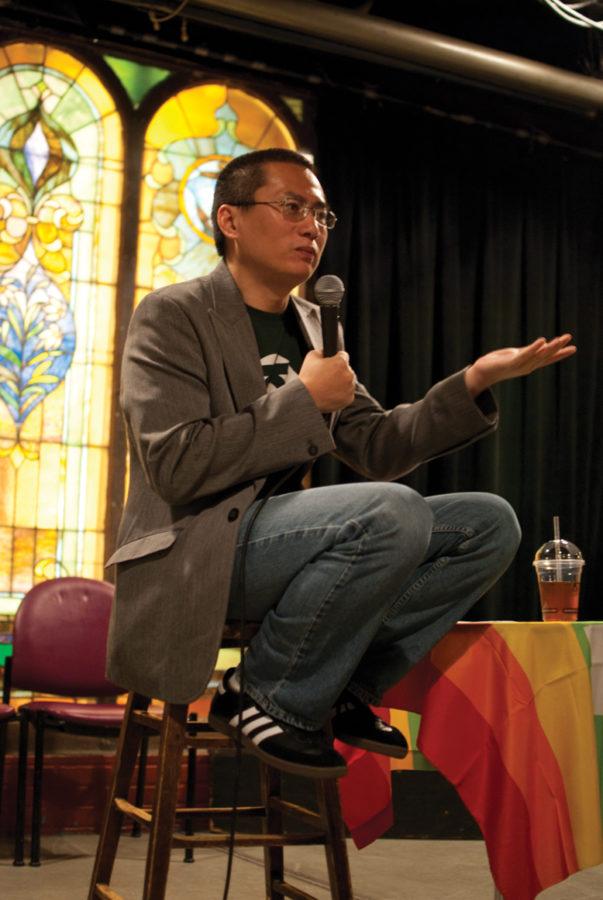Writer speaks about marriage equality
Photo: Karuna Ang/Iowa State Daily
Curtis Chin, cofounder of the Asian American Writers Workshop, talks to a group of audience about marriage equality, Tuesday, Sept. 28, at the Maintenance Shop, Memorial Union.
September 28, 2010
Curtis Chin, screenwriter and political activist, came to Iowa State on Tuesday to speak about gay marriage issues with students and faculty.
He considers himself a writer first, but is very involved with issues such as marriage equality for LGBT people.
Chin spoke to a crowd of roughly 30 people Tuesday afternoon in the Maintenance Shop of the Memorial Union.
Iowa is one of just five states that currently allow same sex marriage. California allowed marriage for a short time between May 2008 and November 2008 for same sex couples, and only 10 countries in the world currently allow homosexual marriage.
Chin believes people shouldn’t be discriminated against based on sexual orientation. Everyone should have the right to the benefits of a legal marriage; and not just some of those rights.
“The difference between marriage equality — what some people call gay marriage, and a civil union — is that with civil unions and domestic partnerships, often times they include many of the rights of heterosexual marriage, but they don’t include all of the rights,” Chin said.
Proposition 22 was passed in 2000 in the state of California. This law stated that marriage in California would be defined as between opposite sex couples only.
This law was deemed unconstitutional in May 2008, opening the doors for 18,000 homosexuals to legally be married in California, but the law was again changed in November 2008.
Proposition 8 essentially changed the law back to the way it used to be, stating that marriage would be between a man and a woman.
Chin was 1 of 18,000 people married in the time period that the law allowed gay marriage.
“We just didn’t feel like celebrating when we feel like all of our friends don’t have that same right too,” Chin said.
He said they will celebrate their legal marriage with friends and family once marriage equality is legalized throughout the U.S., which he believes could “maybe be in 30 or 40 years.”
Chin said he prefers using the term “marriage equality” over “gay marriage” when talking about these issues because the latter implies that it is somehow supposed to be different from heterosexual marriage.
He said he believes there should be no differences between homosexual and heterosexual marriage, so the terms need not be different.
He said he also believes more people will support the term “marriage equality” because it promotes fairness and equality better, rather than stirring up controversy like “gay marriage” sometimes does.
The Lesbian, Gay, Bisexual, Transgender Ally Alliance, the Student Union Board and the Committee on Lectures sponsored the discussion lead by Chin.

















